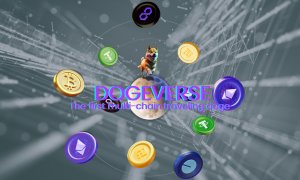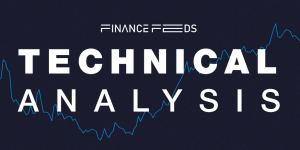Who should check your execution practice? The compliance debate continues
Who should be responsible for making sure FX companies operate in accordance with best execution practices and in their clients’ interests? The debate continues as to whether compliance should be outsourced

Without a shadow of a doubt, throughout the annals of history that document every stage of the evolution of the retail OTC FX industry, nothing could have prepared even the most seasoned professional for the somewhat astonishing downfall of New York’s largest and most widely recognized retail brokerage FXCM.
The company’s abrupt ban from the United States market by the Commodity Futures Trading Commission, along with its CEO Drew Niv and senior Managing Director William Ahdout who between themselves orchestrated a remarkable and clever scheme which spanned several years in which FXCM purported publicly to be operating its execution on an agency basis and passing all trades to an impartial liquidity provider, when in reality the company had an undisclosed interest in a market maker from which it was receiving rebates, that was all the while taking the other side of the trades of FXCM’s retail clients and trading against them.
Even in today’s world of regulation which is conducted with aplomb using up to the minute systems which measure the operational practice of brokerages with millimetric precision, it clearly is not enough if a publicly listed, NFA regulated global company with a shining reputation can have been found to have had less than honorable intentions toward its clients and to have provided several untruths to regulators when inspected.
The dismantling of FXCM’s commercial structure is now only just beginning, with 150 staff having been let go this week and class action law suits beginning which are aiming to defend the interests of shareholders who are now in possession of almost worthless stock, and once again the question of where the conflict of interest in today’s retail electronic trading sector lies.
In the days of the closed system MetaTrader 4 brokerages in the middle of the last decade in which fixed spread was provided to traders who were far less empowered when it comes to knowledge of the electronically traded markets, and no connectivity to the live market existed apart from within a few specialist companies, things were different.

Today, however, since the establishment of specialist companies that connect the MetaTrader 4 platform to live liquidity feeds and provide liquidity management systems that have for close to ten years provided a live market for retail traders of even small white labels of large brokerages, the entire retail sector is empowered, enlightened and the retail business is emulating the institutional world that would have been out of reach to most private individuals just one decade ago.
Thus, the perceived conflict of interest largely does not feature in the mind of many traders, however in the aftermath of the discovery that FXCM was indeed trading against its clients, the notion of conflict of interest may well rear its head again.
There is of course another concern which has been conveyed to FinanceFeeds during the course of this week, that being the notion that there could well be a conflict of interest between compliance departments and brokerages.
Yesterday, Adam Ovesen, a highly experienced senior FX industry executive with institutional background in risk management and prime brokerage provision this morning explained to FinanceFeeds “This is a shocker.”
Mr. Ovesen, who has spent the past three years as a Risk Manager at Metdist Group of Companies, where he is responsible for Hedging exposure as well as managing price and forward risk on LME futures, preceded by two years as Head of Institutional Sales at prime brokerage TopFX in Cyprus, a firm he joined from Saxo Bank, continued to provide his opinion, stating “This is a complete failure of the compliance function amongst other things. There is a deep conflict of interest between being paid by the company you are supposed to monitor, and monitoring it. Perhaps compliance should be externalized completely?”
Yesterday, this notion was elaborated on further by more specialists in regulatory technology and reporting, FinanceFeeds having spent the day in Limassol Cyprus, home to over 150 retail brokerages, where the discussions around this matter fill every brokerage and technology provider in the business.
Speaking to Alexandros Constantinou, Head of Compliance & Regulatory Research at consultancy company MAP S Platis in Limassol, the conversation on this matter continued further.
“Indeed, the independence and impartiality of the Compliance Function is an important topic which is of great interest these days” said Mr. Constantinou.
“Whether it is better to have an in-house or outsourced compliance depends on a number of factors such as the size of the firm, the areas of possible conflicts of interests, the line of business of the financial institution, the corporate governance arrangements of the firm and other” he explained.
“Undoubtedly, outsourcing compliance can in most cases offer better independence and impartiality to the role. But a firm with in-house compliance supported by a very strong corporate governance structure can also secure the independence and impartiality of the Compliance Function” – Alexandros Constantinou, Head of Compliance & Regulatory Research, MAP S Platis
“In order to benefit from the independence and impartiality when outsourcing compliance, the selection of the service provider is vital. For example, appointing a small/boutique service provider with very few clients will unlikely bring about the results expected due to the vulnerability of the service provider of losing a client. Whereas, a large service provider, with a strong and vast portfolio of clients, professional and sophisticated personnel with the right qualifications who abide to the right code of conduct and ethics standards, would make a difference” said Mr. Constantinou.

“In addition to the above, a good service provider would usually have more combined experience and knowledge on the relevant regulatory requirements vs an in-house compliance. Also, a good reputation and working relationship with the regulator is also important for the success of a good Compliance Function” he concluded.
This matter is also a subject for dialog in Britain, where the Financial Conduct Authority (FCA) presides over some of the largest OTC businesses in the world, and where the regulatory environment requires such skilled compliance officers with full knowledge of the topography of the electronic trade reporting procedures and highly advanced systems that now form the market infrastructure as well as the legalities of good old-fashioned financial markets compliance and good practice, that individuals with a combination of these skills are earning over £1,000 per day in consultancy fees.
Bringing the question to British specialists in regulatory technology and market infrastructure oversight as to whether compliance officers on the payroll of the firms that they oversee represents a conflict, FinanceFeeds spoke to Nex Abide Financial in London, a firm that specializes in the provision of consulting and support services to firms subject to the MiFID and EMIR reporting regimes.
Mark Kelly, the company’s Director of Professional Services, explained to FinanceFeeds “I wouldn’t view this instance as representing a general failure of in-house Compliance provision.”
“My observation is that in-house works far more effectively than outsourced Compliance, simply because proximity to the business makes it easier to identify problems as soon as they occur. The FCA has made substantial steps towards making registered officers of regulated firms take individual responsibility for their areas, and I think it would be a backward step to tinker with this” – Mark Kelly, Director, Nex Abide Financial
“Where firms can help themselves and their compliance officers is by being willing to look outside for specialist support in technically demanding areas. Nex Abide Financial would not offer a general compliance outsourcing service, as there are many topics such as financial crime and client assets on which we would not have the relevant expertise, but we would and do offer support to those compliance managers struggling to make sense of regulatory reporting requirements” concluded Mr. Kelly









